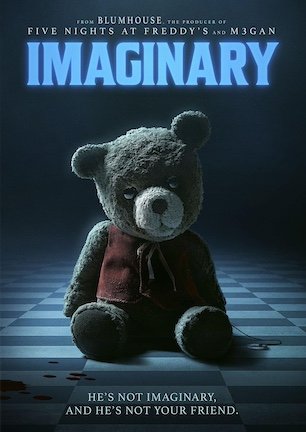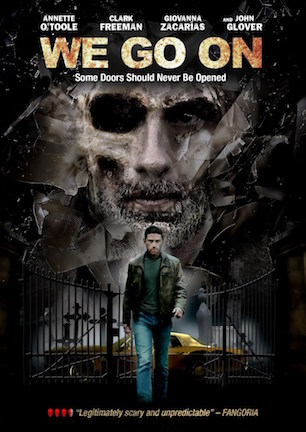Studio: Anchor Bay
Director: Calvin Lee Reeder
Writer: Calvin Lee Reeder
Producer: Nate Bolotin, Roger M. Mayer, Christo Dimassis, James Lejsek, Clayton Young
Stars: Dermot Mulroney, Lindsay Pulsipher, James Cady, Scott Sharot, Paul Blott, Natasha Lyonne
Review Score:
Summary:
A convict released from prison starts a new life on the road by drifting from one strange place to the next.
Review:
“Lynchian” is a made up word that critics fall back on when the need arises to sum up a cinematic oddity succinctly. Anyone familiar with filmmaker David Lynch’s body of work has an instant touchstone in mind when his name comes up in reference to another movie’s style or atmosphere. “Lynchian” basically means “weird, but with an artistic purpose.” A film that can be described with that phrase should also come with an expectation of nonlinear narrative, and “The Rambler” qualifies for all of the above.
Any plot summary offered by someone other than writer/director Calvin Lee Reeder is pointless, since he is possibly the only person who can claim a full understanding of everything taking place in his film. The gist of it is that Dermot Mulroney is the contemporary drifter version of Clint Eastwood’s Man with No Name, albeit with a much less irritated demeanor. After serving four years in prison, The Rambler hits the open road, hitchhiking his way through a swath of the United States that exists somewhere between Twin Peaks and wherever the traveling sideshow from HBO’s “Carnivàle” ended up.
The Rambler himself is at once fearless, yet mortal. His general nonchalance could be mistaken for a devil may care attitude, though it is more that he is simply willing to accept anything and anyone at face value. He has the type of “so be it” philosophy that keeps him visibly unfazed by exploding heads and other manners of sudden death, as well as the occasional fist or bullet aimed in his direction.
Even when pulling a bloody playing card out of a dog-mauled woman’s exposed neck sinew, The Rambler is constantly expressing the words “no big deal” without even having to shrug his shoulders. For a man of few words whose eyes are nearly always hidden behind mirrored-lens sunglasses, Mulroney packs a striking amount of character into the drifter’s cooled persona.
The Rambler rarely initiates a conversation, nor does he have to. One of the oddities about the world of “The Rambler” is that its inhabitants universally speak openly and behave in a bluntly frank manner. Not to the point where they feel free reign to behave badly, but rather to go about their varied business while absent of a filter concerned with societal perceptions. This is a bizarre corner of the universe populated by bow-tied ventriloquists, hook-handed boxers, and little people in orange prison jumpsuits, and none of them feel the need to hide anything from anyone.
Ironically, the closer the movie goes towards traditional storytelling, the less interesting it becomes as a film. There is a midpoint where the Rambler carries on a romance and his daily life can be considered normal for a change. Watching him frolic by the seaside or take in the family man lifestyle of his ordinary brother comes with a longing for “The Rambler” to return to its quirky characters and nonsensical charm.
“The Rambler” is at its most engaging while working as a rambling series of disjointed vignettes. It stops mattering if the film is going to add up to anything completely cohesive or coherent and it becomes fascinating as a uniquely original experience flavored with comedy, horror, and drama.
Something true about the films of David Lynch is that even when intentions fly over the viewer’s head, there is still a sense that at least the director knows what is going on. The same is true of Calvin Reeder. With so many diverse weirdos and multi-faceted curiosities bounding around each corner, Reeder ropes it all together with remarkably unified clarity.
Lesser filmmakers indulge in showy excess for vanity’s sake. Here, Reeder achieves that true Lynchian effect of being immersed in a vision carefully constructed by capable hands. Nothing is empty symbolism tossed in on a careless whim or to intentionally confuse, even when it unintentionally does. It comes to a point where the lush visuals, spontaneous chortles, and offbeat sensibilities completely rob things like plot and structure of their importance.
Put a bouncing ball at the bottom of the screen, and it would still be impossible to follow along from beginning to end. The best advice is to pocket conventional expectations and take the film with the same “let’s just see what happens” approach that the Rambler has. “The Rambler” would not be the strangely appealing movie it is if it were presented as any less off the wall.
Review Score: 70







If you want to see impossible amounts of blood explode crimson colors like the world’s worst version of a gender reveal, well, “Abigail” at least has that.